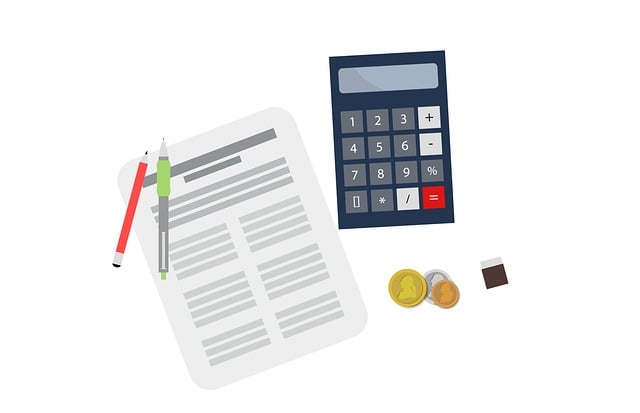Need to be surer of the what are some key components of successful budgeting? This article explores what you need to build a substantial budget and offers five practical tips to master your finances and finally reach your financial goals!
Personal Finance
Particular finance is about managing your plutocrats wisely. It’s like taking care of a theater – you need to plant seeds (save plutocrats), water them regularly (add to your savings), and keep down the weeds (avoid gratuitous spending).
It means making smart choices about how you earn, spend, save, and invest your plutocrat. It’s essential to produce a budget to track your income and charges so you can see where your plutocrat is going.
Saving plutocrats is also pivotal for extremities or considerable pretensions like buying a house or going to council. And when you invest, you are putting your plutocrat to work to grow it over time potentially. It’s also essential to avoid debt traps.
While it’s okay to adopt plutocrats for big purchases like an auto or a home, it’s necessary to adopt responsibly and not take on more debt than you can go to repay. Paying off debt should be a precedence to avoid paying redundancy in interest freight.
Learning about particular finance can empower you to make informed opinions about your plutocrat and take control of your fiscal future. Flashback: small ways like budgeting, saving, and avoiding gratuitous debt can lead to long-term fiscal stability and freedom.

The Building Blocks of a Strong Budget
Track Your Income and Charges
To make a substantial budget, you need to know where your plutocrat is coming from and where it’s going. Start by gathering your bank statements and paying remainders and bills. It will help you track how important plutocrats you are bringing in (like your payment or earnings from side jobs) and how important you are spending (on effects like rent, groceries, and serviceability). Once you have this information, classify your charges into different groups. There are essential requirements, like paying for casing and buying food. Also, there is optional spending, which includes effects like going out to eat or buying clothes. Remember any debt payments you might have, like credit card bills or pupil loans.
Set Clear Financial pretensions
Suppose what you want to achieve with your plutocrat. Do you want to make up a savings bumper for extremities? Are you featuring paying off your credit card debt or saving up for a down payment on a house? Setting apparent fiscal pretensions gives you a commodity to work towards and helps you stay motivated. It’s essential to have both short-term pretensions, like paying off a credit card, and long-term pretensions, like saving for withdrawal. Knowing what you are aiming for will guide your budgeting opinions and keep you concentrated on your fiscal precedence.
Creating a Realistic Budget
Now, it’s time to put your plan into action and produce a budget that works for you—grounded on your income and spending habits, set limits for each order of your budget. It’s essential to be realistic – while it’s good to try and cut back on gratuitous spending, setting a budget that is too strict can be hard to stick to. Make sure your budget reflects your life and allows for some inflexibility. It’s okay to adjust your budget significantly as required, as your fiscal situation changes over time.
Find areas where you can cut.
Look at how you spend your money and determine if it is possible to reduce charges. With time, small changes add up and can help you save money. For example, you could pack your lunch to work instead of buying one every day. Or you could look for cheap entertainment. You can cut down on costs by being aware of what you spend and choosing wisely.
Erecting an Emergency Fund
Life is full of different challenges, like different budgets at emergency times. That’s why it’s essential to have an emergency fund. Aim to save enough haves to cover 3- 6 months of living charges. It will give you a fiscal safety net to fall back on when effects do not go as planned. Start small and make up your exigency fund over time. Indeed, setting aside a little bit of plutocrat each month can make a big difference in the long run. Having an exigency fund in place will give you peace of mind and help you stay on track with your budgeting pretensions.
What are some key components of successful budgeting?
1. Embrace Automation: Technology can be your budgeting BFF!
Using technology can make managing your money easier! Online banking tools are like helpful friends for your budget. You can set them up to automatically move plutocrats into your savings regard or pay your bills on time. This way, you will remember to pay a bill, and you can stick to your budget.
When you automate your finances, you are making sure effects are without you having to do them manually. It’s like having a robot adjunct that takes care of your plutocrat tasks for you! With automatic transfers to your savings, you are erecting up your savings without indeed allowing it.
Scheduling bill payments means you will be able to meet all deadlines and get hit with late freights. If you want to make your budgeting life easier, try embracing robotization. It’s like having a dependable friend who always has your reverse when it comes to managing your plutocrat!

2. Regularly Review and Acclimate Your Budget
Your budget is like a chart for your plutocrat, guiding you toward your fiscal pretensions. But just like roads can change, so can your spending habits. That is why it’s essential to review your budget regularly, like checking the chart to see if you are still on track.
You can do this daily or yearly, whatever works best for you. Look at where your plutocrat went during that time. Did you spend less on groceries this month because you set up a great deal at the store?
Stupendous! Now, suppose about where you can put that redundant plutocrat. You could beef up your exigency fund a little more or put it towards paying off a debt briskly. Acclimate your budget to reflect these changes so you can keep moving forward towards your fiscal pretensions.
3. Paying Off Debt
It’s like always carrying a heavy bag. You feel weighed down, and it makes it more challenging to reach your goals. Especially those credit cards with high- interest rates – they are like carrying around a redundant weight on top of your formerly heavy cargo.
So, it’s important to make paying off debt a precedence. Take a look at your budget and see how important you can go to put towards your debts each month.
Start with the bones that have the loftiest interest rates. It’s like dicing down at the giant jewels in your pack first, so the cargo gets lighter briskly. You might want to try the debt snowball system, too. That is where you concentrate on paying off the lowest debts first so that you can see progress snappily.
It’s like taking off some of the lower jewels in your pack to make it easier to carry the more giant bones. Keep at it, and ultimately, you will be walking a lot lighter without all that debt dragging you down.
4. Embrace Inflexibility when unanticipated situations arise.
Life can be changeable, and occasionally unanticipated charges pop up. Your auto needs a form, or you have to visit the croaker suddenly. When these situations arise, be easy on yourself if you end up spending further than you planned.
It’s essential to admit that you’ve gone over your budget, but do not let it discourage you. Instead, use it as a literacy occasion.
Take a moment to review your spending and identify where you may have overspent. Did you splurge on eating out further than usual, or did you buy a commodity you did not need?
By understanding where your plutocrat went, you can acclimate your budget for the following month. You may need to allocate further finances to specific orders or cut back on unnecessary charges. Budgeting is all about flexibility and adaptation.
5. Celebrate Your Successes budgeting isn’t a race but a marathon.
It’s important to admit your accomplishments, even if they are still small, along the trip. Take the time to admit your achievements, whether you have reached your savings goal, paid off your credit card, or just stuck to your yearly budget. Celebrate your palms to keep yourself motivated.
Indeed, small palms, like defying the temptation to buy gratuitous commodities, earn recognition. By celebrating these achievements, you support positive fiscal habits and instigation towards your long-term pretensions.
Flashback: budgeting isn’t about depriving yourself of the affects you enjoy; it’s about making conscious choices with your plutocrat to achieve fiscal freedom and security.
So, whether it’s treating yourself to a small price or simply stroking yourself on the reverse, take the time to celebrate your progress. You’ve worked hard to manage your finances effectively, and that is a commodity worth celebrating!

Conclusion
Taking control of your finances does not have to be a difficult task. By enforcing the essential structure blocks of a strong budget, shadowing income and charges, setting apparent pretensions, and creating actual spending limits, you will be well on your way to fiscal stability.
Flashback: successful budgeting empowers you to make informed budgetary opinions and achieve your desires. Follow the five masterful tips we have explored: automate transfers, regularly review and acclimate, prioritize debt prepayment, grasp Inflexibility, and celebrate your achievements.
With a solid budget as your roadmap, you can navigate your fiscal trip with confidence and pave the way for a future filled with budgetary success.
FAQS
1. I do not know where my plutocrat goes! How can I track my income and charges?
There are several ways to track your income and charges. The most straightforward system is to gather your bank statements, pay remainders and bills for a month, and classify your spending.
Numerous budgeting apps and online tools can automate this process by connecting to your bank accounts and grading deals for you.
2. I tried budgeting before, but I always failed. What can I do else?
One of the most common miscalculations is creating an unrealistic budget. Be honest with yourself about your spending habits and set attainable pretensions. Another pitfall is strictness. Unanticipated charges be! Review your budget regularly and acclimate allocations as demanded.
Eventually, celebrate your triumphs! Reaching a savings thing or paying off a credit card is a significant achievement.
3. How much should I allocate to each spending order?
There is no one-size-fits-all answer, but a good starting point is allocating 50 of your income to essential requirements (casing, food, transportation), 30 to optional spending (entertainment, dining out), and 20 towards savings and debt repayment.
You can acclimate these probabilities to be grounded in your specific fiscal situation and pretensions.
4. How can I stay motivated to stick to my budget?
Set apparent fiscal pretensions and track your progress. Seeing your savings grow or your debt shrink can be an essential motivator. Award yourself for reaching mileposts along the way. Flashback: budgeting is a trip, not a destination. There will be lapses, but do not give up!
